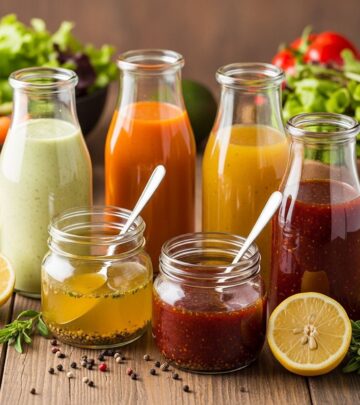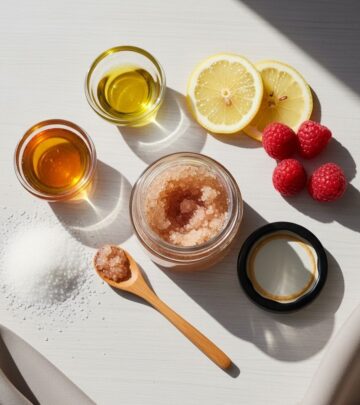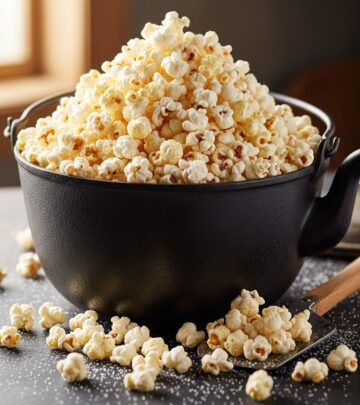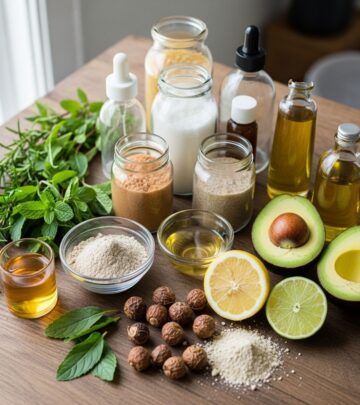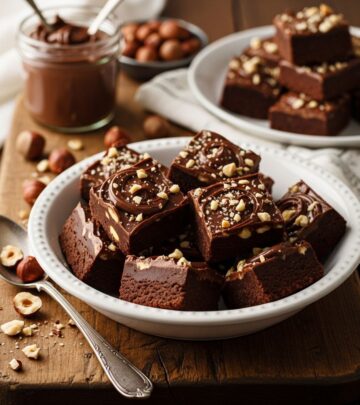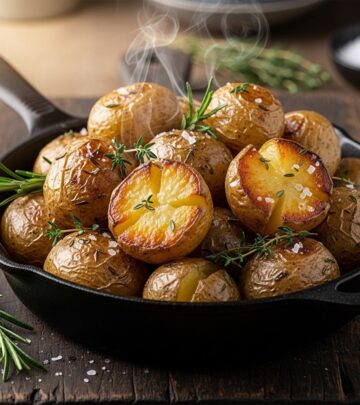Red Thai Duck Curry: A Fragrant Feast of Flavor and Technique
Elevate home cooking with balanced spice, creamy coconut richness, and tender meat.

Red Thai Duck Curry is a vibrant, luxurious dish that captures the essence of Southeast Asian cuisine—balancing bold flavors, creamy coconut richness, and the unmistakable savor of tender duck. Whether you are a seasoned chef or a home cook ready to explore new tastes, this guide unpacks all the ingredients, steps, stories, and troubleshooting tips you need to master Red Thai Duck Curry in your own kitchen.
Table of Contents
- Introduction
- Essential Ingredients
- Step-by-Step Preparation
- Expert Tips for Authentic Flavor
- Serving Suggestions & Pairings
- Recipe Variations
- Nutritional Overview
- Frequently Asked Questions
Introduction
Red Thai Duck Curry (Gaeng Phed Ped Yang) is a dish celebrated for its blend of sweet, spicy, and aromatic notes. Traditionally prepared with roasted duck, red curry paste, coconut milk, and fresh vegetables and herbs, this curry is a mainstay at festive occasions and beloved Thai restaurants. The distinctive gamey richness of duck pairs perfectly with the heat and depth of red curry, offset by the creamy background of coconut milk and the fresh pop of pineapple or tomatoes.
Using duck in Thai curry demonstrates an intersection of royal culinary heritage and practical, crowd-pleasing home cooking. Mastery lies in balancing flavor, texture, and presentation.
Essential Ingredients
The key to an unforgettable Red Thai Duck Curry is a careful selection and preparation of ingredients:
- Duck: Roasted or pan-seared duck breast, skin-on for best texture.
- Red curry paste: Rich in chili, garlic, lemongrass, and aromatic spices. Homemade or high-quality store-bought varieties both work.
- Coconut milk and cream: Coconut milk forms the base, coconut cream adds extra silkiness.
- Fish sauce: Delivers essential umami saltiness.
- Palm sugar: Sweetens the dish and balances the spices.
- Kaffir lime leaves: Impart citrus fragrance and depth.
- Thai basil: Peppery notes and a fresh finish.
- Pineapple or cherry tomatoes: Adds juicy, sweet contrast to the savory and spicy components.
- Shallots, garlic, ginger, galangal: Aromatic building blocks for the base paste.
- Lemongrass sticks: Essential for classic Thai flavor.
- Fresh chilies: To adjust heat as desired.
- Neutral oil: Coconut or canola oil preferred for sautéing.
Sample Ingredient Table
| Ingredient | Typical Amount (Serves 4) | Purpose |
|---|---|---|
| Duck breast (skin-on) | 2 large | Protein, rich flavor |
| Red curry paste | 3–4 Tbsp | Spicy, aromatic base |
| Coconut milk | 500 ml | Creamy sauce |
| Palm sugar | 2 Tbsp | Sweet balance |
| Fish sauce | 2–3 Tbsp | Salty, umami depth |
| Pineapple chunks | 1 cup | Sweet, juicy acidity |
| Kaffir lime leaves | 4–6 | Citrus aroma |
| Thai basil | 1 handful | Herbal finish |
Step-by-Step Preparation
- Cook the Curry Base: Heat oil in a wok or deep skillet over medium-high. Sauté the red curry paste with ginger and garlic until fragrant, about 1–2 minutes.
If using homemade paste, include minced shallots, lemongrass, galangal, and fresh chilies. Stir constantly to avoid burning.
- Add Coconut Cream and Simmer: Pour in thick coconut cream and cook until the oil begins to separate, forming bubbles (about 3–4 minutes). This step intensifies flavor.
- Season and Build Flavor: Stir in palm sugar, fish sauce, and kaffir lime leaves. The goal is to balance sweet, salty, and citrus notes at this stage.
- Add Vegetables and More Coconut Milk: Toss in pineapple, cherry tomatoes, and pour remaining coconut milk. Simmer until the tomatoes soften, about 4–6 minutes.
- Finish with Duck: Add roasted duck slices (skin-on preferred for texture); simmer until heated through, 2–3 minutes. Duck should stay tender—not overcooked.
- Final Adjustments: Taste and adjust seasoning—add more palm sugar, fish sauce, or lime juice as needed. Stir in Thai basil leaves, then promptly remove from heat.
- Serving: Ladle curry into bowls, ensuring a mix of duck, fruit, and sauce each time. Optional: drizzle with coconut milk or garnish with a few extra Thai basil leaves.
Quick Tips for Success
- Duck Texture: Pre-roast or pan-sear duck before adding to curry. This intensifies flavor and keeps meat tender.
- Paste Freshness: Toast curry paste briefly for fuller flavor.
- Coconut Quality: Use good quality coconut milk. Shake cans before opening and avoid watered-down products.
- Topping: Garnish with fresh herbs and a splash of lime juice for brightness.
Expert Tips for Authentic Flavor
Authenticity in Red Thai Duck Curry hinges on a few key techniques:
- Oil Separation: Let coconut cream fry until the oil separates. This deepens spice infusion.
- Layered Seasoning: Always taste and adjust salt (fish sauce), sweet (palm sugar), and sour (lime juice) before finishing.
- Fresh Ingredients: Thai basil and kaffir lime leaves must be fresh—dried alternatives dull the flavor.
- Duck Preparation: Roast duck up to a day in advance for richer taste; slice just before simmering in curry.
- Pineapple Choice: Use ripe, fresh pineapple for best results, not canned.
Serving Suggestions & Pairings
Red Thai Duck Curry is a festive centerpiece best paired with aromatic sides that absorb its decadent sauce:
- Steamed jasmine rice: The classic, mild background for curry’s strong flavors.
- Brown rice or rice vermicelli noodles: Offers extra nutrition and a pleasing contrast in texture.
- Fresh vegetable slaw: Cucumber, carrots, and mint cut through the richness.
- Thai iced tea: Cools the palate and matches spice intensity.
Recipe Variations
Don’t be afraid to tweak the recipe based on preference or ingredient availability:
- Substitute Protein: Replace duck with chicken for a lighter profile, or try firm tofu for a vegetarian twist.
- Differing Fruits: Substitute pineapple with lychee or mango for distinct sweetness.
- Vegetable Additions: Bell peppers, snap peas, and bamboo shoots add crunch and color.
- Heat Control: Adjust the quantity of fresh chiles or curry paste to your liking.
Nutritional Overview
Red Thai Duck Curry delivers moderate calories, excellent protein, and a range of nutrients. Here’s a sample nutrition profile per serving, based on typical preparation:
| Nutrient | Amount Per Serving |
|---|---|
| Calories | Approx. 610 kcal |
| Proteins | 30 g |
| Fat | 33 g |
| Carbohydrates | 53 g |
| Saturated Fat | 24 g |
| Sodium | 801 mg |
| Potassium | 1284 mg |
| Fiber | 8 g |
| Sugar | 32 g |
Serve with plenty of rice or noodles for a filling meal. Note: Calories and nutrition will vary based on adjustments and portion size.
Frequently Asked Questions (FAQs)
Q: Can I use store-bought red curry paste?
A: Absolutely. Store-bought paste is convenient and consistent, but homemade gives you control over flavor balance, heat, and freshness.
Q: How do I ensure tender duck in my curry?
A: Roast or pan-sear duck before adding to curry. Simmer gently and avoid overcooking once in the sauce.
Q: What’s the best substitute for kaffir lime leaves?
A: If unavailable, use a blend of lime zest and a bit of fresh lemongrass for a similar bright aroma.
Q: Is Red Thai Duck Curry very spicy?
A: The dish is moderately spicy, but heat is easily adjusted with less curry paste or fewer chiles. Coconut milk also helps cool the palate.
Q: Can I prepare curry in advance?
A: Yes, prepare the sauce and roast duck ahead. Combine and heat thoroughly just before serving to preserve best flavor and duck texture.
Q: How should leftovers be stored?
A: Store cooled curry in an airtight container in the fridge for up to 3 days. Gently reheat on the stove, adding a splash of coconut milk if needed.
Conclusion
Red Thai Duck Curry offers a celebration of flavor, technique, and culture in every bite. With the right ingredients, careful cooking, and attention to authentic details, you can bring this iconic dish to your table and savor its dazzling, harmonious notes. Adapt as needed, experiment with new ingredients, and enjoy with family and friends.
References
- https://www.simplysuwanee.com/thai-roasted-duck-curry/
- https://www.gressinghamduck.co.uk/recipes/thai-duck-curry/
- https://honest-food.net/thai-red-curry-duck-recipe/
- https://hungryinthailand.com/thai-roasted-duck-curry/
- https://www.recipetineats.com/thai-red-duck-curry/
- https://www.mythaicurry.com/blogs/recipe-blog/thai-duck-red-curry-with-pineapple
- https://shershegrows.com/thai-red-curry-with-duck/
Read full bio of Sneha Tete

